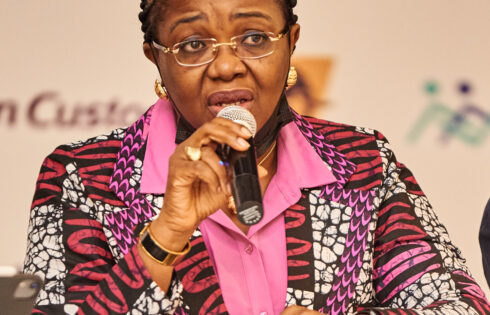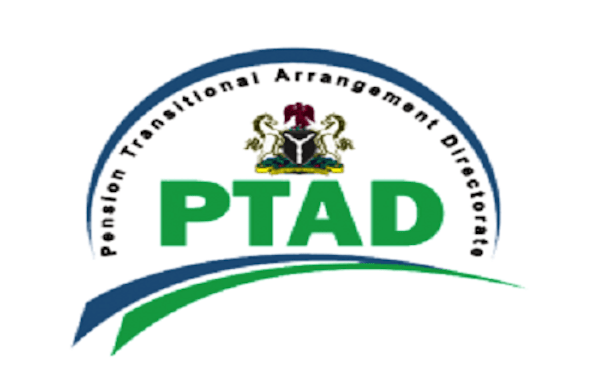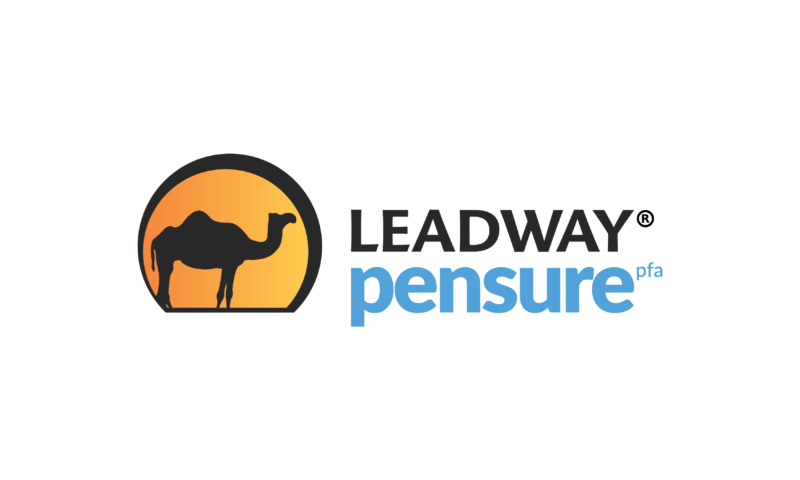By admin
The Contributory Pension Scheme administered by the Pension Fund Administrators has since inception 17 years ago recorded some achievements as well as met some obstacles. In this report, Ebere Nwoji takes a look at the performance of the scheme in the face of the down turn in Nigeria’s economy
The Contributory Pension Scheme (CPS) regime in Nigeria was established by the Pension Reform Act 2004 amended in 2014, which put the management of pension fund in the hands of private organisations called Pension Fund Administrators (PFAS).
The investment of the contributed fund was also placed in the hands of different set of investment experts called Pension Fund Custodians (PFCs).
Both have their activities regulated by the National Pension Commission (PenCom), which also stands as federal government adviser on pension matters.
With the establishment of these bodies and enactment of laws guiding their operations, Nigerian pension system which hitherto was enmeshed in huge deficit of over N2 .56 trillion during the defined benefit pension scheme era, suddenly wriggled out of the deficit track to gain its present ground of conveniently sitting on huge accumulated N13 trillion assets.
This has automatically positioned the pension sub sector as a vibrant part of the finance service sector of the economy.
The above N13 trillion represents the quantum of contributions made by both employees and employers of over nine million Nigerian workers who have so far keyed into the scheme.
The fund contributors were all registered by the 22 licensed Pension Fund Administrators in the country and their investment into various investment portfolios specified by the law is managed by four registered pension fund Custodians in Nigeria.
Licensed PFAs
The 22 licensed PFAs include: AIICO Pension Managers Limited, APT Pension Fund Managers Limited, ARM Pension Managers Limited, CrusaderSterling Pensions Limited, FCMB Pensions Limited, Fidelity Pension Managers, First Guarantee Pension Limited, IEI-Anchor Pension Managers Limited, Investment One Pension Managers Limited, Leadway Pensure PFA Limited and Nigerian University Pension Management Company (NUPEMCO).
Others are NLPC Pension Fund Administrators Limited, NPF Pensions Limited, OAK Pensions Limited, Pensions Alliance Limited, Premium Pension Limited, Radix Pension Managers Limited, Sigma Pensions Limited, Stanbic IBTC Pension Managers Limited, Tangerine Pensions Limited and Trustfund Pensions Limited and Veritas Glanvills Pensions Limited.
The PFCs
As stipulated by the laws guiding pension fund investments, the investment of the funds generated by these PFAs is determined by the following four PFC; First Pension Custodian Nigeria ltd, UBA Pension Custodian Ltd, Zenith Pension Custodian Limited, and Access Pension Custodian Limited.
They Play the role of undertaking the responsibility for keeping safe custody of pension assets on trust on behalf of contributors.
The main functions of PFCs are to receive pension contributions on behalf of PFAs; settle transactions and undertake activities relating to the administration of pension fund investments on behalf of PFAs and to notify the PFA within 24 hours of the receipt of pension contributions from employers.
The CPFAs
Operating side by side with these existing and licensed 22 PFAs are five other organisations called Closed Pension Fund Administrators (CPFAs)
These are managers of Pension schemes in the private sector existing prior to the introduction of the Contributory Pension Scheme (CPS) in June 2004.
After Pension Reform Act 2001 was enacted, these were allowed to continue as CPFAs, subject to guidelines issued by PenCom.
The companies are required to have operated a fully funded existing pension scheme with assets of at least N500 million. A condition precedent on the issuance of a CPFA license is that the company must possess the requisite capacity for the management of pension fund assets and show that it had managed its pension scheme effectively for at least five years prior to the commencement of the CPS.
The CPFAs operate mostly as Defined Benefits Schemes with a guarantee from the sponsor companies over any funding deficit.
But the Pension Reform Act, 2014, an amendment of 2004 Act, has foreclosed new entrants into the CPFAs.
The amended Act stated that effective from July 1, 2014, all new employees of the sponsor companies are required to join the CPS and open Retirement Savings Accounts (RSAs) with a PFA of their choice. Furthermore, an existing employee still reserves the right/option of pulling out of the CPFA to join the CPS.
Currently, there are five Closed Pension fund administrators in Nigeria, which are: Chevron closed PFA, Nestle Nigeria Trust Limited, Nigeria Agip CPFA Limited, Progressive Trust CPFA Limited, Shell Nigeria Closed Pension Fund Administrators ltd and Total (E&P) Nigeria CPFA Limited.
Pension experts said these CPFAs are still in good conditions as most of their employees and retirees are comfortable with their operation and management of their retirement Benefits.
PFA performance
Both the PFAs and PFCs have from their inception been doing well even up to the present time though currently they are faced with a lot of challenges.
Their impressive performance over these years was no doubt aided by the compulsory nature of pension contribution by both the public sector and private sector employers and employees.
The PRA 2014 mandated both the employers and employees to contribute 18 per cent in the order of 10 percent by the employer and eight percent by the employee.
Regular contributions to the CPS by both the private and public sector workers and their employers boosted the growth of the fund to the present level within a decade and half of CPS regime.
At present, the status of the Scheme is this in the past seven years, according to recent report released by the National Pension Commission, 19,000 workers from the public and private sectors joined the CPS Scheme (CPS) growing the asset by N470 billion.
Data obtained from the National Pension Commission (PenCom) have shown.
The PenCom data, said pension asset stood at N12.31 trillion as of December 31, 2020 but soared to N12.78 trillion by July 31, 2021
On the investment side, N8.13 trillion was invested in federal government securities as of December 2020. This increased slightly to N8.2 trillion by July 2021.
PenCom also noted that as of December 2020, N136.59 billion was invested in state government securities, N1.69 trillion in the local money market while N89.68 billion was invested in state government securities in July 2021 and N2.11 trillion in the local money market.
PenCom Director General, Aisha Dahir-Umar, noted that it was pertinent to reassure stakeholders that the implementation of the CPS remained on course.
She stated that the maintenance of consistent growth continues to justify the Commission’s overriding philosophy of ensuring the safety of pension fund assets.
Challenges
The CPS, which by all parameter of measurement has been adjudged the best scheme for pensioners, is not without challenges and these challenges dates back to its early years.
The downturn in the economy, which started in 2008 during the melt down in the global financial system made the scheme to lose some amount invested in the capital market. But not so much was lost, as the law guiding pension fund investment did not allow much investment in the capital market.
One of the challenges facing PFAs at present regarding the down turn in the economy is the fact that as a result of job cuts in various sectors occasioned by the COVID19 out break, inability of some firms to break even and weakened purchasing power of the masses, there has been low output and low return on investment by most firms, many firms also experienced low profit margin leading to loss of jobs by many Nigerians.
With the loss of jobs, there was pressure on the existing PFAs for withdrawal of 25 percent of their contributed funds as permitted by the law.
The PRA 2014 permits contributors into the CPS below 50 years who lost their jobs to withdraw 25percent of their contributions if they fail to get another job within four months of loss of the previous job.
Closely connected to this is the fact that as these withdraw demands were coming, new employees were not getting fresh jobs to add to the number of contributors and generate more funds for the scheme.
There was also the problem of volatility in the federal government investment instrument. Example is the fluctuation in the yields of federal government bond where over 70 percent of the pension fund was invested.
For instance, the pension fund declined from N12.306 trillion in December 2020 to N12.248 trillion in February 2021, showing N58 billion decline.
Giving explanation to this, the National Pension Commission (PenCom) attributed the decline to volatility in the market.
The commission’s head corporate communications, Mr Peter Aghahowa, however, said this was not a big problem, expressing optimism that the market would bounce back.
Stakeholders in the scheme said main challenges faced by the PFAs are low coverage of the scheme and compliance, inadequacy of benefits and poor awareness about the benefits of pension scheme.
Also the scheme operators themselves highlighted other challenges saying poor outreach of operators to Nigerian workers, the challenge of deepening investment to create impact and low exchange rate of naira to dollar.
They also identified non-compliance by various state governments, most of which are still operating the “pay as you go” system, as a major hitch to further advancement of the CPS scheme.
Accrued Rights
Before now, one of the key challenges of the scheme and the PFAs administration was inadequate or total non- funding of the Redemption Fund against the annual projected pension liability, arising from voluntary and mandatory retirements, death of employees in service and the right of pensioners to pension review in line with section 173(3) of the 1999 Constitution (as amended).
Indeed, since the advent of the CPS scheme, the failure of the federal government and some state governments that have keyed into the scheme, to transfer to PenCom the accrued rights of government workers for onward transfer to the various Pension Fund Administrators (PFAs) managing the workers’ contributed funds has constituted delays to immediate payment of workers’ lump sum benefits after retirement.
The Accrued rights are entitlement of workers from their employers before the enactment of pension Reform Act 2004 that established the CPS.
The result is that in most cases, because of much delay in the release of the accrued rights, most workers don’t receive their benefits two to three years after their retirement.
The situation was worsened by the fact that the Act establishing the scheme did not give room for payment of the fund contributed by the employee and his employer to keep soul and body alive pending the time government would have the necessary funds to pay their accrued rights.
This often makes the retiring workers feel that there is no difference between the CPS, which is funded, and the Defined Benefit Scheme, which is non funded, since the workers who constitute the contributors have to wait for some years for government to release their accrued rights before they can receive their retirement benefits.
But President Muhammadu Buhari recently gave approval for the release of workers’ accrued rights and backlog of differential based on 10 per cent employer contributions according to Pension Reform Act 2014 (PRA2014).
Achievements
With the recent approval of the accrued rights payment by the federal government coming on the heels of commencement of the transfer window, the pension industry has indeed recorded great achievement this year and in the views of the stakeholders stand the chance of tripling the current pension asset figure if other similar hiccups standing on the way of its advancement would be addressed.
Comparison with other countries’ Pension sector: in U.K, the political culture just like in Nigeria is not generally favourable to tax rises to fund welfare including pensions (and in any event both the short and medium term are likely to be dominated by other calls on revenue).
Pension experts in UK, said the savings culture just like in Nigeria is not strong and the pensions sector has been damaged by the unintended consequences of state action, miss‐selling scandals among others.
Similar to Nigerian employers, in U.K, Private employers are dramatically reducing the scale of their contributions towards the pensions of their general workforce.
The president, Pension Operators Association of Nigerian (PenOp ) Mr. Wale Odutola, who is also the Managing Director, ARM Pension Managers, said though the pension industry has raised the bar for professionals locally, as investment, risk and compliance professionals within the industry can favourably compare to their counterparts anywhere in the world. He said that there are many areas where the sector is behind its counterparts in other countries.
“One area is the level of pension penetration. Nigeria currently has a pension penetration rate of approximately 11 percent of its labour force. This pales in comparison to 19 percent in South Africa, 20 percent in Kenya and 77 per cent in the United Kingdom.
“Consequently, it goes without saying that the industry needs to deepen its level of penetration, especially in the informal sector.
Another area of improvement is the level of pension assets to GDP. Nigeria’s level of pensions assets to GDP is only a little over seven percent while in developed markets, it is typically above 100 percent.
“So, whilst the level of our pension assets are relatively large in absolute terms, when you look at it in relation to GDP, it is actually low. This further speaks to the fact that we need to increase the level of penetration of the pensions scheme in general, “Odutola stated.
Former Director General, National Pension Commission (PenCom), Muhammad Ahmad, said the micro pension segment market of the sector needs to be tapped in order to bring every Nigerian in both formal and informal sector into pension coverage.
He said pension operators have a lot of work in this regard, insisting that large chunk of their work is in the area of conviction and building trust.
He said operators’ starting point in tapping the opportunities in the informal sector is analysing the market.
But despite these challenges, the PFAs are not doing badly.
Their financial records in 2020 shows that despite the COVID-19 challenge, they posted impressive returns in the year 2020,
There is healthy competition going on among the operators.
Since the launch of the RSA transfer window in November 2020, the competition amongst Nigerian Pension Administrators has increased as contributors can now easily switch from one PFA to another. In less than two months of the launch, over 6,000 RSA contributors applied to switch over to new managers between November and December 2020 and currently, the number has doubled.
They are now on a very serious race for customer centric service delivery, as each PFA wants to outwit the other in service delivery.
From the recent data released by PenCom, there is every likelihood that before the end of this year, the pension asset will cross N13 trillion margins while number of contributors will be heading to 11 million according to pension experts.


















